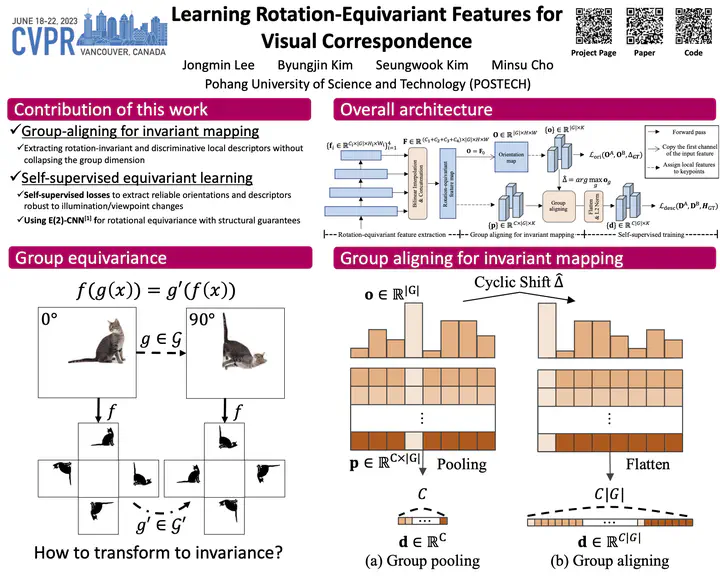
Abstract
Extracting discriminative local features that are invariant to imaging variations is an integral part of establishing correspondences between images. In this work, we introduce a self-supervised learning framework to extract discriminative rotation-invariant descriptors using group-equivariant CNNs. Thanks to employing group-equivariant CNNs, our method effectively learns to obtain rotation-equivariant features and their orientations explicitly, without having to perform sophisticated data augmentations. The resultant features and their orientations are further processed by group aligning, a novel invariant mapping technique that shifts the group-equivariant features by their orientations along the group dimension. Our group aligning technique achieves rotation-invariance without any collapse of the group dimension and thus eschews loss of discriminability. The proposed method is trained end-to-end in a self-supervised manner, where we use an orientation alignment loss for the orientation estimation and a contrastive descriptor loss for robust local descriptors to geometric/photometric variations. Our method demonstrates state-of-the-art matching accuracy among existing rotation-invariant descriptors under varying rotation and also show competitive results when transferred to the task of keypoint matching and camera pose estimation.